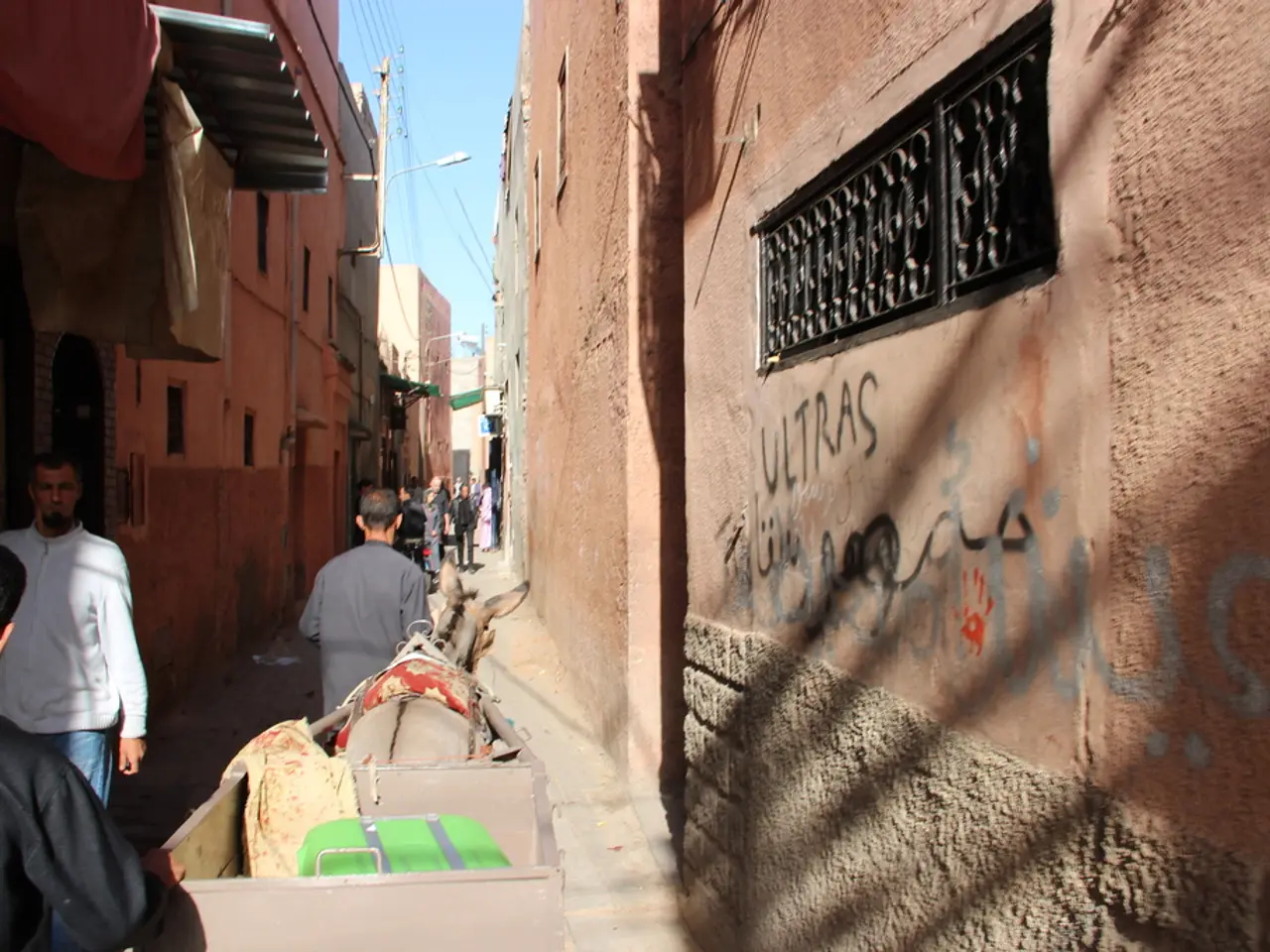Gaza City's occupation plan by Israel draws fierce criticism from various sources
Israel's decision to expand military operations and seize control of Gaza City has been met with strong condemnation from the international community. The move, which risks exacerbating the humanitarian crisis and causing displacement of hundreds of thousands of Palestinians, has been denounced as a violation of international law and a threat to regional stability.
The United Nations, led by Secretary-General António Guterres, has expressed grave concern over the plan, warning that it risks igniting severe displacement, death, destruction, and regional destabilization. The UN calls for the protection of civilians, unconditional release of hostages, humanitarian relief facilitation, and adherence to International Court of Justice measures.
Turkey has strongly condemned the plan as genocidal and expansionist, calling it a severe blow to international peace and security. Ankara urges Israel to immediately abandon the plan, agree to a ceasefire, and negotiate a two-state solution, while calling on the UN Security Council to impose binding measures to halt Israel’s actions in violation of international law.
France has also condemned the plan, emphasizing opposition to occupation and forced displacement, which it says constitutes serious violations of international law. Paris underlines that such actions undermine prospects for a two-state solution and regional stability and calls for immediate hostage release by Hamas and their disarmament.
A joint statement by the UK, Denmark, France, Greece, and Slovenia echoes this condemnation and highlights the risk of violating international humanitarian law and causing further civilian suffering. They urge Israel to reverse the decision and reiterate the necessity for a two-state solution and Palestinian Authority governance in Gaza.
Amnesty International describes Israel’s plan as an outrage and calls for immediate halting and rescinding of the military expansion into Gaza City, warning of catastrophic consequences for Palestinians, already suffering from bombings, starvation, and a decimated healthcare system. They reiterate calls for unconditional release of hostages by Hamas and condemn starvation used as a method of warfare.
The Hostage Relatives Forum has labeled the decision a "death sentence" and an "official declaration of abandonment" of captives. The decision comes after 22 months of intense bombardment.
Several Arab and Muslim-majority states, including Saudi Arabia, Egypt, and Pakistan, have also condemned Israel's plan to seize control of Gaza City. Hamas has warned that the takeover would amount to "sacrificing" the hostages.
Germany has announced it will suspend arms exports to Israel that could be used in Gaza "until further notice." The European Council President, Antonio Costa, has stated that the move "must have consequences" for Israel’s ties with the EU. Belgium has summoned Israel’s ambassador, while the Netherlands and Denmark have called for the decision’s reversal.
The UK, under Prime Minister Keir Starmer, has urged Israel to reverse its decision regarding Gaza City. The move threatens to deepen Israel’s diplomatic isolation, with critics arguing it violates international law, breaches EU agreements, and risks inflaming an already dire humanitarian situation.
The international community overwhelmingly condemns the Israeli plan to expand military operations and militarily control Gaza City, warning it will deepen the humanitarian crisis and calling for immediate ceasefires, protection of civilians, respect for international law, release of hostages, and renewed diplomatic efforts toward a two-state solution.
- The international community, including the United Nations, Turkey, France, and several Arab and Muslim-majority states, have strongly condemned Israel's plan to expand military operations and seize control of Gaza City, labeling it as genocidal, expansionist, and in violation of international law.
- In response to the international condemnation, Germany has suspended arms exports to Israel that could be used in Gaza, while the UK, under Prime Minister Keir Starmer, has urged Israel to reverse its decision, fearing it could deepen Israel’s diplomatic isolation and inflame an already dire humanitarian situation.








